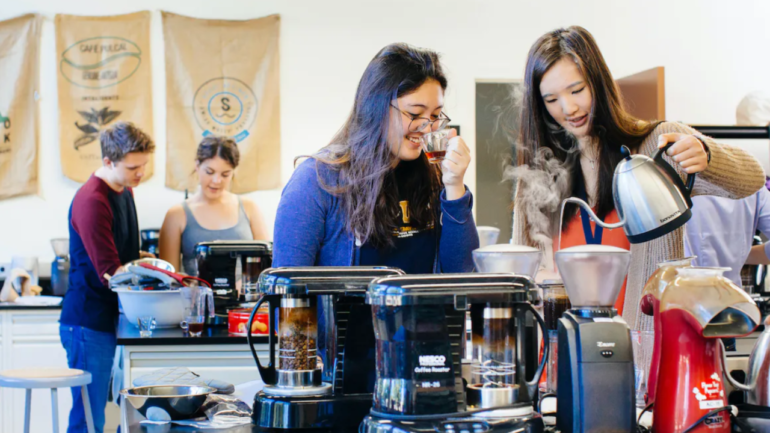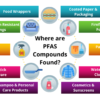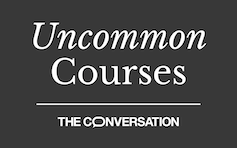
Uncommon Courses is an occasional series from The Conversation U.S. highlighting unconventional approaches to teaching.
Title of course:
The Design of Coffee: An Introduction to Chemical Engineering
What prompted the idea for the course?
In 2012, my colleague professor Tonya Kuhl and I were drinking coffee and brainstorming how to improve our senior-level laboratory course in chemical engineering. Tonya looked at her coffee and suggested, “How about we have the students reverse-engineer a Mr. Coffee drip brewer to see how it works?”
A light bulb went off in my head, and I said, “Why not make a whole course about coffee to introduce lots of students to chemical engineering?”
And that’s what we did. We developed The Design of Coffee as a freshman seminar for 18 students in 2013, and, since then, the course has grown to over 2,000 general education students per year at the University of California, Davis.
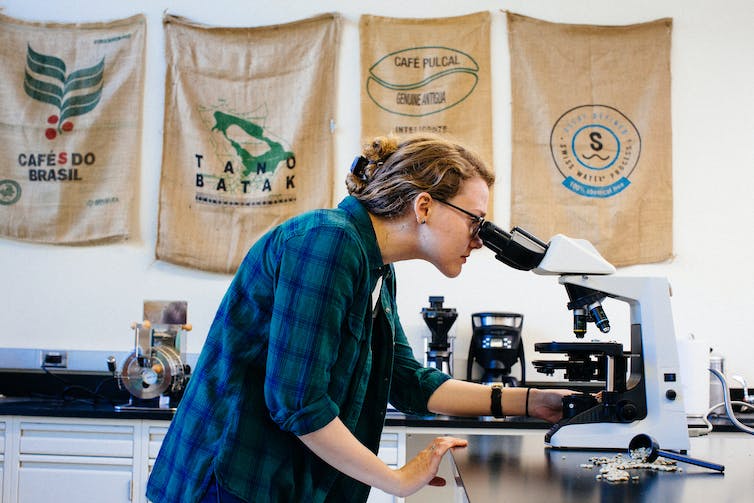
A student uses a microscope to look at coffee beans in The Design of Coffee lab.
UC Davis
What does the course explore?
The course focus is hands-on experiments with roasting, brewing and tasting in our coffee lab.
For example, students measure the energy they use while roasting to illustrate the law of conservation of energy, they measure how the pH of the coffee changes after brewing to illustrate the kinetics of chemical reactions, and they measure how the total dissolved solids in the brewed coffee relates to time spent brewing to illustrate the principle of mass transfer.
The course culminates in an engineering design contest, where the students compete to make the best-tasting coffee using the least amount of energy. It’s a classic engineering optimization problem, but one that is broadly accessible – and tasty.
Why is this course relevant now?
Coffee plays a huge role in culture, diet and the U.S. and global economy. But historically, relatively little academic work has focused on coffee. There are entire academic programs on wine and beer at many major universities, but almost none on coffee.
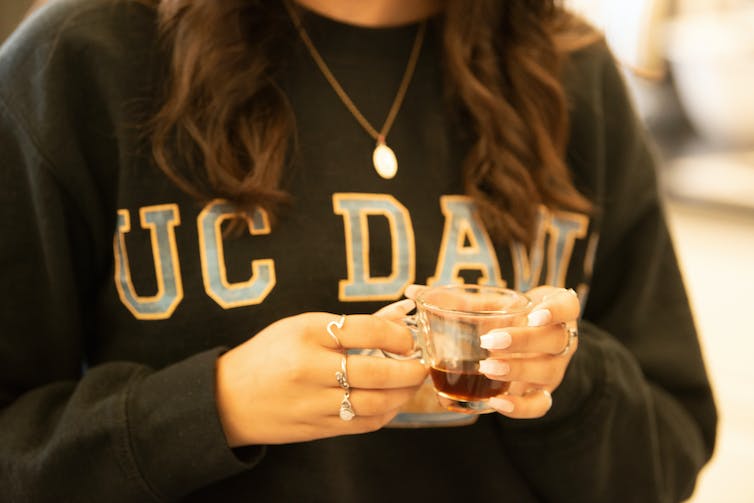
Many students who don’t like coffee develop a taste for it over the course of the class.
UC Davis
The Design of Coffee helps fill a huge unmet demand because students are eager to learn about the beverage that they already enjoy. Perhaps most surprisingly, many of our students enter the course professing to hate coffee, but by the end of the course they are roasting and brewing their own coffee beans at home.
What’s a critical lesson from the course?
Many students are shocked to learn that black coffee can have fruity, floral or sweet flavors without adding any sugar or syrups. The most important lesson from the course is that engineering is really a quantitative way to think about problem-solving.
For example, if the problem to solve is “make coffee taste sweet without adding…
